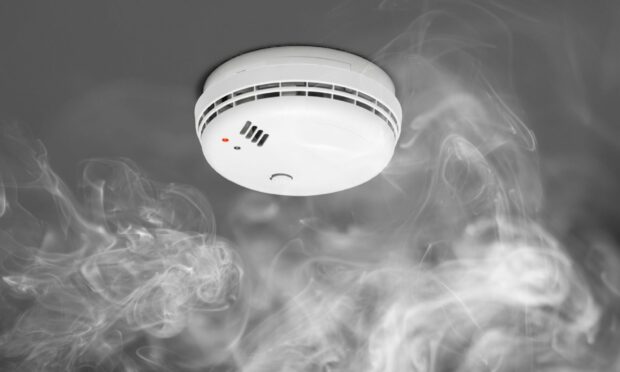New rules around fire safety have come into force, but just how many council homes have been fitted with interlinked smoke alarms?
From February 1, homes are required to have an interlinked smoke detector system.
Smoke alarms are required in rooms where people spend most of their time, as well as in kitchens and in hallways.
The interlinked system means if one alarm goes off they all go off.
How many council homes have been upgraded on time?
Across the north and north-east the majority of council homes were fitted with the correct system ahead of the rule change.
According to the Highland Council, around 95% of their council homes are compliant with the new regulations. However, they were unable to provide exact figures on how many homes this equated to.
As of Monday January 10, Aberdeenshire Council was at 89% compliance. This means that 11,570 of their homes were fitted with interlinked smoke alarms, meanwhile, 1,430 are still waiting to be upgraded.
In Moray, 5,204 council homes out of 6,266 had their smoke alarms updated by January 25 which equals 83%.
Orkney has the smallest number of council-owned homes, and figures up to December 23 show that out of 985 homes, 767 have been completed to the new standard.
Around 70.6% of Aberdeen City Council homes are compliant with the new regulations. Out of 22,080 homes, the council has upgraded 15,589 with interlinked smoke detectors.
Finally, as of January 24, Shetland Council had 496 of their 1737 homes fitted with the new smoke alarms by their in-house repair service.
They have three contracts with external contractors to complete 1,148 properties, which are still being worked on.
The Western Isles have no council homes.
Why have some upgrades taken so long?
With the ongoing pandemic, some councils have had issues with accessing properties.
Orkney Council explained that they sent letters out to tenants in January advising of the requirement for entry.
A spokeswoman said: “Should any properties remain outstanding thereafter, further steps will be considered to ensure compliance.”
Aberdeenshire Council also explained that they have had a “handful of hard-to-access” properties.
Moray Council, which only has 5% of homes still to visit has warned “forced entry” may be used to access properties where tenants do not allow entry.
Shetland Council has 93 properties that are long-term void or where access has been denied. Including the 1,148 properties that are being worked on by external contractors, the council predicts the work will be completed by the end of May.
Meanwhile, the Highland Council has claimed that compliance has been particularly challenging due to Covid outbreaks in the area.
A spokesman said: “The recent Omicron wave, which we are still experiencing here in Highland, has continued to impact on our programme and as a result of a large number of tenants isolating at this time we have had to delay installations where this was the scenario.”
In areas across the north and north-east, electricians have warned there has been a shortage of interlinked alarms.
The Scottish Government confirmed there will be no penalties for non-compliance and no one will be penalised if they need more time.
